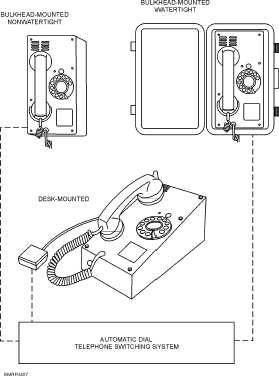Don’t go on talking to someone in the office as you
answer the telephone. You never know who your caller
may be, and information inadvertently given out in this
way could be harmful to national security. In addition, it
is discourteous to make the caller wait while you finish
your office conversation.
When you answer the phone for someone who is
absent from the office, give some facts to the person
making the call. Do not merely say, “He is not in right
now.” Rather, tell the caller when you expect the person
to return, or volunteer to help if you can. If you have no
information concerning the whereabouts of the person
called, ask the caller if you may take a message.
Always make sure you have a pencil and pad beside
the telephone for taking messages. This practice
eliminates needless rummaging about while the other
person is holding the line open. Also, it is worth
remembering that the message will mean little to the
person for whom it is intended unless you leave the
following information:
1. Name of the caller
2. The message
3. Time and date of the message
4. Your name
Sometimes, you may have to leave the telephone to
obtain additional information for a call. When this delay
is necessary, you should make it known to the caller. If it
takes more time to obtain the required information than
you anticipated, give the caller an occasional progress
report, such as “I’m sorry I did not find it there. If you do
not mind waiting, I will look elsewhere.”
When making a telephone call, there are certain
rules you should observe.
1. Be sure that the number you dial is the correct
one. When you dial wrong numbers, you waste
other people’s time as well as your own.
2. When making a call to another office, identify
yourself immediately.
3. If you make the call for another person or an
officer, so inform the person at the other end of
the line. This courtesy eliminates the need for
the other party to question you in this regard.
4-10
Student Notes:
Figure 4-7.—Telephones.


